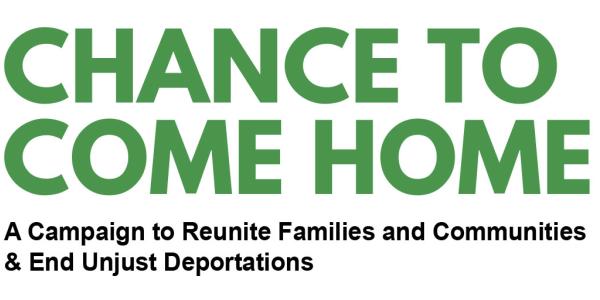“I miss my two boys. I miss my wife. My dream is gone.”
Ibrahima, now 63, fled to the United States in 1990 to escape dictatorship and political persecution in Mali. He lost his asylum case while represented by a bad lawyer. However, he lived in the United States for 10 years under an order of supervision. In May 2018, after 10 years of reporting diligently to ICE without any problems or contact with the criminal legal system, ICE agents appeared at his door and arrested him on his front lawn in front of his wife and five- and seven-year-old children. ICE detained Ibrahima for a year before deporting him. His traumatic deportation left lasting emotional harm on his children, who have suffered from depression and bouts of self-harm in the time since they were separated from their father. Without Ibrahima’s income, his wife and two children, including one who also suffers from sickle cell anemia, are now at risk of losing their home.
Life in Ohio
Ibrahima was a respected member of his community in Cincinnati, known for his exceptional work ethic as a medical courier and as the sole breadwinner for his family. Ibrahima was the only family member able to drive his son to the children’s hospital where he received frequent life-saving treatments for his sickle cell disease.
Poor legal representation, eight years of ICE supervision & sudden deportation
Ibrahima sought asylum in the United States after fleeing a dictatorship and persecution in Mali. Unfortunately, Ibrahima’s lawyer at the time failed to show up to court on the day of his asylum hearing. Ibrahima waited outside the courthouse for hours, unaware that he could appear in his asylum hearing alone. While he waited outside, an immigration judge ordered Ibrahima deported. But when Mali refused to provide travel documents to effectuate his removal, ICE placed him under supervision and required that he check in with the U.S. government on an infrequent basis. Ibrahima complied with this order for eight years until ICE told him he no longer required check-ins. Two years later, ICE officers showed up at his door, arrested him for deportation, and tore him from his family.
Deportation’s irreversible harms to Ibrahima’s family
As a result of witnessing their father’s traumatic ICE arrest and their continued separation from him, both of Ibrahima’s children suffer from depression. One of his children also copes with self-harm behaviors and suicidal thoughts. Ibrahima’s wife has struggled since his deportation to pay rent. She was forced to move with her sons to temporary housing provided by a local church and later to a hotel. It is not possible for Ibrahima’s family to relocate to Mali to be together. The country is in the midst of a deadly crisis, and the lifesaving treatments their son requires for his sickle cell anemia, a rare blood disease, are not available there. Put simply, he would die.
Image
“I worked. I paid all my taxes. I’m a family man. I take care of my wife, my kids, my two boys. I worked everyday. I worked Thanksgiving Day, Christmas Day, New Year’s. I worked seven days just to take care of my two kids. My dream is gone.”
Ibrahima recently requested that DHS exercise prosecutorial discretion to grant his humanitarian parole application, but the agency denied his request.
For more information on Ibrahima’s case, contact Lynn Tramonte at Ohio Immigrant Alliance.
- Deported to Mali in 2019 after coming to the U.S. to seek asylum 20 years earlier
- Lived in Cincinnati, Ohio
- Separated from wife and two young sons, including one with sickle cell anemia
Image
Read more stories:



